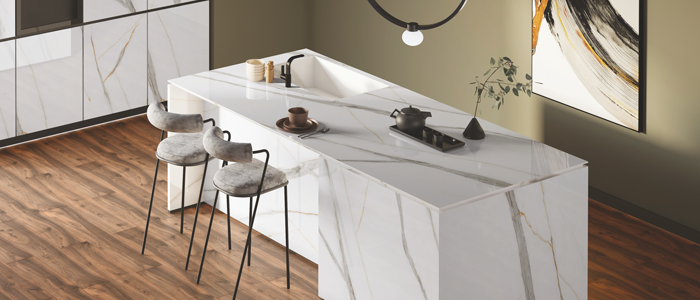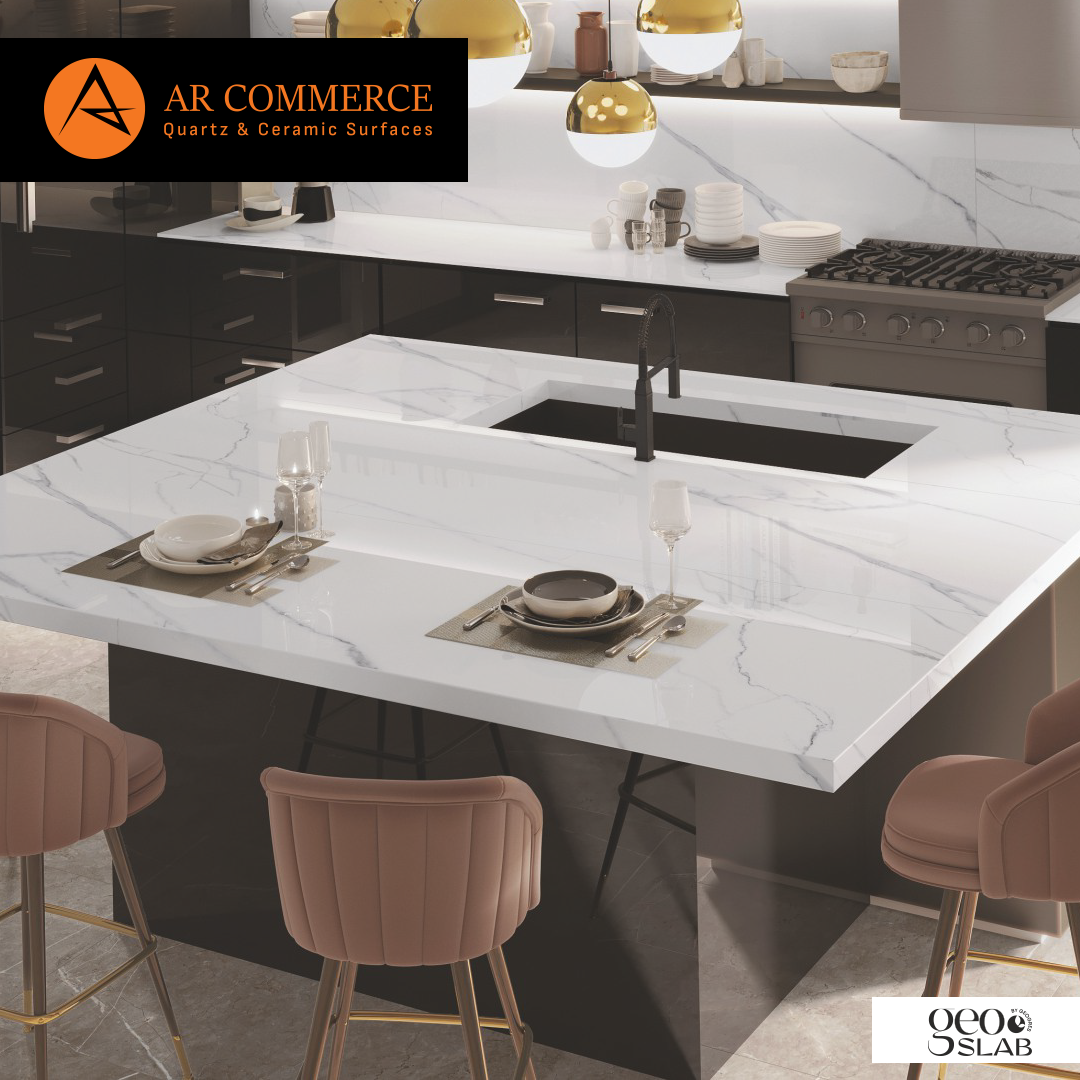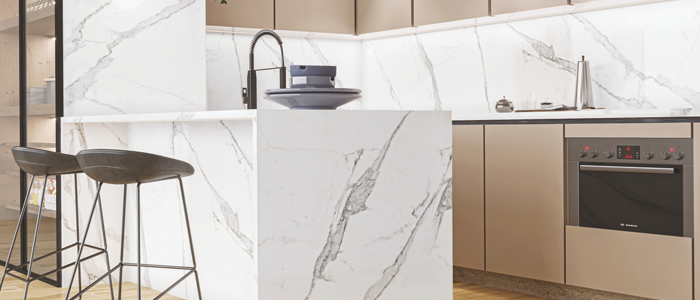Synthetic stone – with what qualities does it stand out?
Synthetic stone was first developed in the late 1990s as a response to the growing demand for durable, low-maintenance and environmentally friendly alternatives to natural stone. The first sintered stone products were manufactured in Italy, where the technology was patented and the manufacturing process was perfected.
Primarily manufactured in Italy, Spain and China, sintered stone countertops start with recycled materials like quartz, porcelain and glass, along with raw minerals like zircon, emmatite and albite. These materials are ground to a fine powder. They are fired to extremely high temperatures (over 1000°C or 1832°F) until they sinter – forming a cohesive mass that does not melt.1Low temperature sintering process. The baked materials are formed into sheets under extremely high pressure.

Sintered stone can be used for a variety of countertop needs from the kitchen to the bathroom, while working in locations prone to extreme heat fluctuations, such as surrounding fireplaces or areas outside the home where its UV resistance can be put to the test and respond excellently.
Sintered stone has become a popular choice for kitchen countertops due to its durability, flexibility and aesthetic appeal. It is a type of engineered stone made from natural materials such as minerals, quartz and porcelain that are compressed and heated to high temperatures. This manufacturing process results in a dense and durable material that is scratch, stain and heat resistant.
Here are some advantages of using sintered stone for kitchen countertops:
Durability: Synthetic stone is known for its durability and resistance to scratching and impact. Can withstand heavy use in the kitchen without showing signs of wear.
Stain Resistant: Synthetic stone is non-porous, meaning it does not absorb liquids. This makes it very resistant to stains from common kitchen substances such as wine, oil and acidic foods.
Heat Resistance: Synthetic stone is resistant to high temperatures, making it suitable for use around stovetops and hot pans. However, it is always a good idea to use pads or hot pads to protect the surface from intense heat.

Hygienicity: Because it is non-porous, sintered stone is resistant to bacteria and other microorganisms. This makes it a hygienic choice for kitchen surfaces.
Easy maintenance: synthetic stone is easy to clean and requires minimal maintenance. Regular cleaning with mild soap and water is usually enough to keep it looking new.
Diverse design: synthetic stone comes in a variety of colours and patterns, often mimicking the look of natural stone. This allows for a wide range of design options, making it easy to find a style that complements your kitchen decor.
Unified Look: Unlike natural stone, sintered stone typically has a more uniform look that some homeowners find appealing.
Types of sintered stone applications:
- Kitchen worktops
- Bathroom sinks
- Wall cladding
- Floor covering
- Staircase
- Patios and outdoor pavements
- Cladding of external walls
- Enclosure of fireplace
- Lining of a swimming pool
- Spas and wet rooms
Can we afford it? After all the advantages listed, one would think that sintered stone is very expensive and few people could afford it. But this is not so! The prices of this type of stone are very close to the prices of quartz stone and are completely affordable for the Bulgarian market.
When considering sintered stone for your kitchen countertop, it is important to work with a professional installer to ensure proper measuring, cutting, and installation. In addition, follow the manufacturer’s care and maintenance guidelines to maintain the beauty and functionality of the surface over time.
In the face of AR Commerce, you can find a partner in choosing a countertop for your kitchen or bathroom, as the variety of technical and sintered stone offered, along with professional installation advice are guaranteed. The brands that AR Commerce offers are Cimstone, Belenco, Coante and Geoslab.
Read more from the AR Commerce blog:
The best countertop for kitchen – How and why to choose quality?
What is the difference between technical stone and sintered ceramic?







